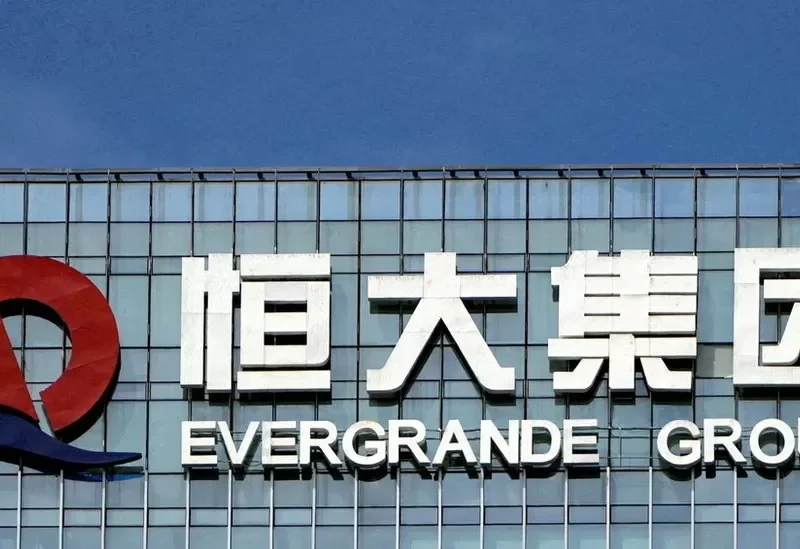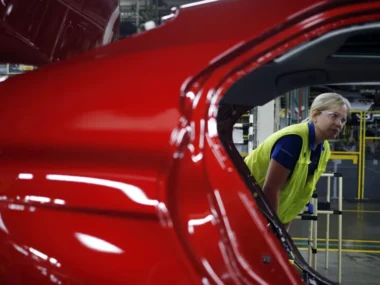The stock of China’s Evergrande has declined as the troubles at the troubled real estate developer have intensified.
Its mainland subsidiary, Hengda Real Estate, has disclosed a default on 4 billion yuan (£449m; $547m) in debt, which was made public on Monday.
According to reports from Beijing-based news outlet Caixin, several current and former executives of Evergrande have been detained by authorities, including former CEO Xia Haijun and ex-finance chief Pan Darong.
The accuracy of Caixin’s reporting has not been independently verified by the BBC, and Evergrande has not yet responded to the BBC’s request for comment.
Evergrande’s share price experienced a significant drop on Tuesday, following an even more pronounced decline the previous day. This week alone, Evergrande’s stock has plummeted by over 25%.
In a statement to the Hong Kong Stock Exchange issued on Sunday, Evergrande explained that it was unable to issue new debt as part of its restructuring plan due to an ongoing investigation into Hengda by authorities.
Earlier this month, police in Shenzhen, southern China, detained staff members from Evergrande’s wealth management unit. Law enforcement encouraged the public to report any suspected fraud cases on social media.
In the preceding week, it was announced that Evergrande’s insurance arm would be taken over by a newly established state-owned insurer.
Is China’s economy potentially facing significant challenges in the future?
“The most recent developments are expected to complicate Evergrande’s efforts to successfully execute its restructuring,” remarked Eveline Danubrata of REDD Intelligence Asia in her statement to the BBC.
Evergrande is also confronting a court hearing in Hong Kong regarding a winding-up petition, a move that could potentially push the company into liquidation. Originally scheduled for July, this hearing has now been rescheduled for October 30.
Danubrata added, “Creditors may hesitate to endorse a restructuring proposal with an extended repayment timeline if they have concerns about the company’s viability.”
With a debt exceeding $300 billion (£246 billion), Evergrande has been a focal point of China’s property debt crisis, which has seen several major developers default over the past year.
While most of Evergrande’s debt is owed to domestic creditors, including many ordinary citizens whose homes remain unfinished, it has more flexibility in renegotiating the terms of repayment for these onshore debts.
The company’s major concern for its survival centers around the $31 billion owed to foreign creditors who purchased Evergrande bonds. The company defaulted on these debts two years ago and has been working on a new repayment plan ever since.
Previously, Evergrande appeared to be progressing toward a solution when it filed for U.S. bankruptcy protection in August. Its latest plan involved reissuing its overseas debt as new bonds with a repayment period of approximately 10 years, along with offering creditors stakes in the company in the form of shares.
However, the company’s recent troubles have cast serious doubts on the viability of its turnaround plan.











